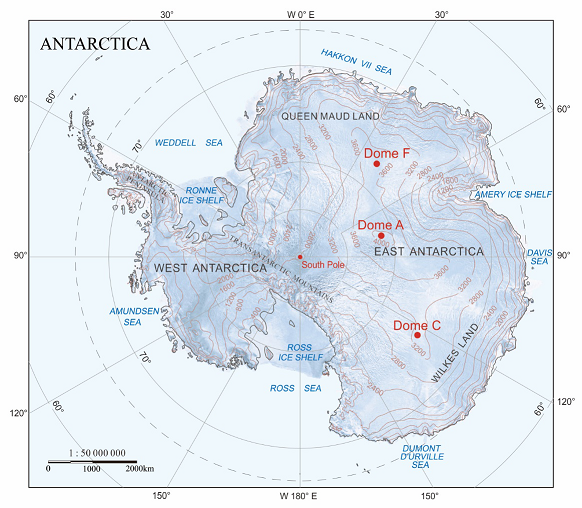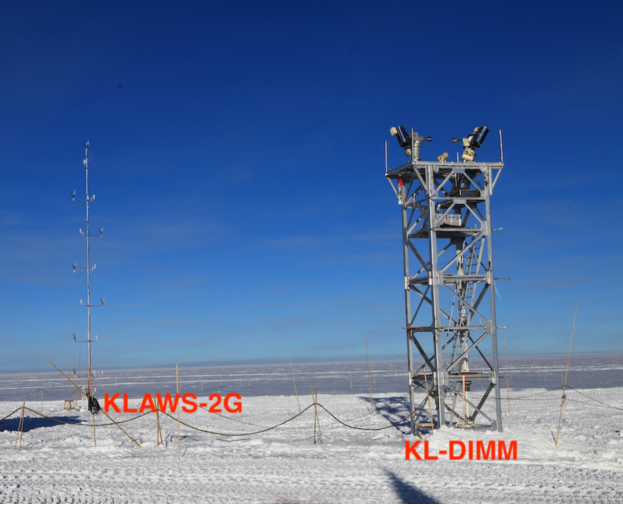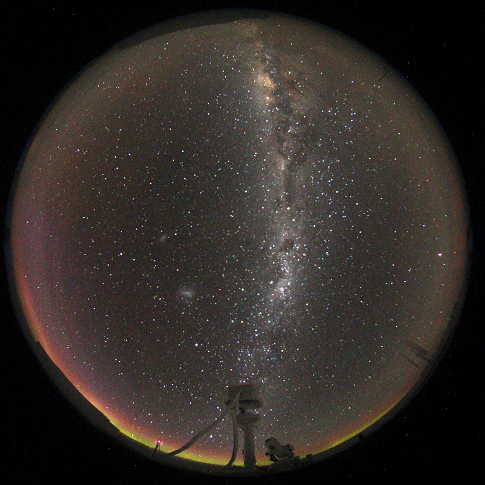Antarctic Astronomy and Time-domain Astronomy Group (AATAG)
The Antarctic Astronomy and Time-domain Astronomy Group (AATAG) has carried out pioneer work in Antarctic astronomy. We have developed both software and hardware of the operation, control and data system for the Antarctic Survey Telescope (AST3), which achieved unattended, automated sky survey, including observation, real-time data reduction and transfer, automatic detection of transient candidates and automatic alarming.
Members from the group have participated in the Chinese National Antarctic Research Expedition (CHINARE) for 6 times, installing and commissioning instruments at the inland Kunlun Station, Dome A.
In 2018, we developed and installed a set to site testing instruments successfully at the Kunlun Station, including two Kunlun Differential Image Motion Monitors (KL-DIMM) and its 8m tower, a Kunlun Automated Weather Station (KLAWS), and two Kunlun Cloud and Aurora Monitors (KLCAM). The data have proved that Dome A in Antarctica has the best astronomical observing conditions in optical on the ground with a measured seeing as good as 0.13 arcseconds and a median free-atmosphere seeing of 0.31 arcseconds. These results provide a scientific basis for future Antarctic astronomy projects. The study was published in Nature in July 2020.

The Location of Dome A in Antarctica
Dome A is the highest place on the Antarctica plateau, located within 80°S latitude circle at an altitude of 4093 meters. The winter temperature are usually between -50℃ to -80℃ while in summer it is seldom above -30℃。 (Curtsey of Xiaoping Pang and Shiyun Wang from Wuhan University.)

KL-DIMM and KLAWS-2G
Two KunLun Differential Image Motion Monitor (KL-DIMM) telescopes on the 8-m tall tower for seeing measurement and the 15m-tall KLAWS-2G with multi-layer sensors for monitoring the atmosphere properties at Dome A.

The night sky of Dome A
The night sky of Dome A taken by KLCAM, which is a customized all-sky camera for long-term study of cloud cover and aurora contamination. The Milky-way, LMC, and SMC are visible with aurorae in green and red around the horizon.